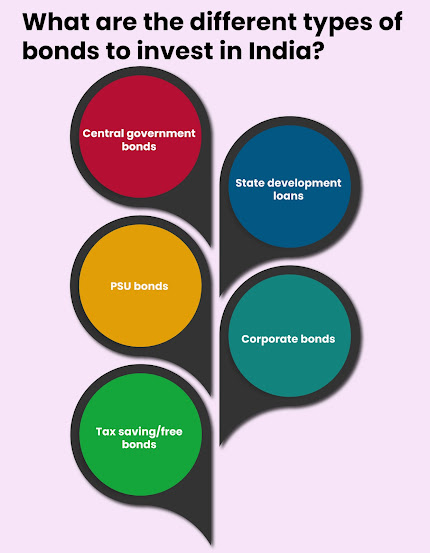Bonds vs Fixed Deposits
Alternative investment opportunities in India
Indian investors have a variety of options when they set out to seek different investment avenues in the country. These may include IPO investment, shares, mutual funds, ETFs, fixed deposits, bonds, and many more. It may be confusing to decide between various investment options, especially if you are a low-risk appetite investor. For such investors, two exemplary investment options are bonds and fixed deposits.
Old-school investors are generally aware of fixed deposits, but they have limited information when it comes to answering questions like what are bonds in India and how to buy bonds here. To learn more about the top bonds to invest in India, click here to BondsIndia.com.
Let us now know more in detail about bonds and fixed deposits and do a comparative analysis of both.
Fixed Deposits
Banking and non-banking financial institutions offer Fixed Deposits as a fixed-income instrument to investors.
Fixed Deposits come with guaranteed returns and offer a higher interest rate than savings accounts.
They offer the benefit of compounding as they offer a reinvestment option, allowing the investor an opportunity to earn an interest not only on the invested amount but also on the accumulated interest.
FDs offer a higher interest rate to senior citizens and are a risk-free investment option in old age.
You can take a loan against your FD.
The growth in FDs is unaffected by the fluctuations in the market.
Bonds
Bonds are another fixed-income investment instrument. Bonds are a type of debt instrument where the bonds investor lends funds to the bond issuer (government or private entity) for interest and a fixed tenure.
Bonds do not move in tandem with the stock market, thus offering diversity to your investment portfolio.
Bonds are salable and can be sold in the secondary market based on the current market yield.
Bonds hold a lower risk compared to equity investments.
You can get the complete earnings from the bands which are not tax-deductible.
Bonds induce a habit of long-term saving since they do not come with flexible tenures.
Advantages of Bonds over Fixed Deposits
There is a hundred percent guarantee of investment in government bonds by the government but this guarantee is only up to Rs. 5 lakhs for fixed deposits with banks.
Bonds come with a mandatory credit rating, but no such credit rating is mandatory for fixed deposits issued by banks so investors can stay confident about the credibility of the bond based on its credit rating.
Payments on investment bonds are cumulative, so they are like a compulsory saving for the investor, giving a consolidated payout at the end of the bond tenure.
In case of the bankruptcy of the bond issuer, bondholders get a preference over the shareholders.
The interest payout on bonds can be significantly higher for some categories of bonds than fixed deposits.
Bonds and Fixed Deposits both come with their unique advantages for the investor. While FDs are the more traditional and popular mode of investment, Bonds may offer higher returns than FDs To purchase bonds online.




Comments
Post a Comment